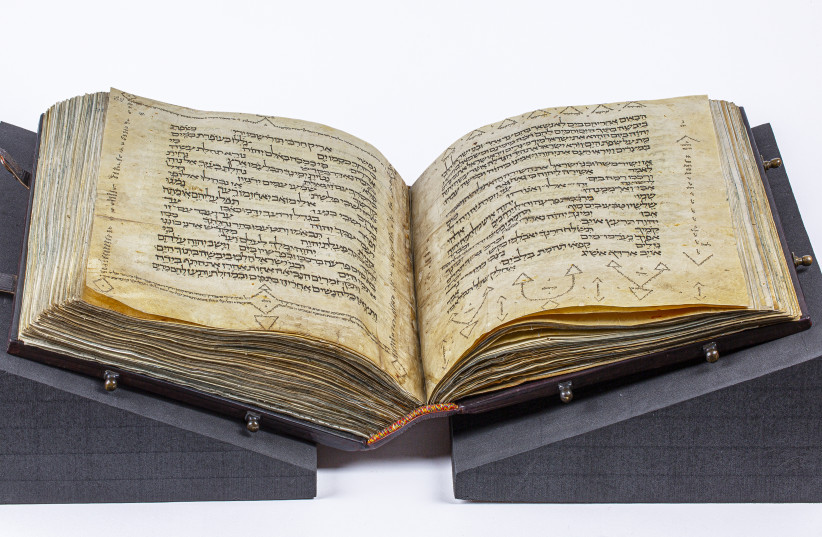Who cleanses you?
This week’s Torah portion – Nitzavim – continues with the description of the covenant made between God and the Jewish nation before it entered the Promised Land.
We read verses that were visions of the future, predicted by the Creator of the universe, though for us they are events that occurred in history. In these verses, we read that the Jewish nation will sin and veer off the path, will be exiled from its land and, after some time, will wish to return to its God and land.
The Torah continues to describe that at this point, God will gather His nation from all the places to which they were exiled, and will return them to His land. This incredible revelation has already started to come true. The Jewish nation was exiled from its land and is returning to it after nearly 2,000 years.
The Torah describes what is going to happen from this point forward: “And the Lord, your God, will circumcise your heart and the heart of your offspring, [so that you may] love the Lord your God with all your heart and with all your soul, for the sake of your life.... And you will return and listen to the voice of the Lord, and fulfill all His commandments, which I command you this day” (Deuteronomy 30:6-9).

These consoling verses say that after the Jewish people returns to its land, God will circumcise the people’s hearts. What does that mean?
Centuries of sin, exile and distance created a sort of spiritual cover over the heart that thickened as time passed.
The phrase “circumcise your heart” might seem familiar from some relationships in our lives that did not survive over time or through hardships. There were people in our lives to whom we opened our hearts at certain points, and our relationship with them flourished, but the passage of time and various events caused us to grow apart. Over the years, our hearts closed off and the old feelings were relegated to dark corners, replaced by a thick layer of disconnection and separation.
When the Jewish nation returns to its land, this layer has to be removed gently so that the heart can open, feel, and get closer to God. The “mohel” who will perform this circumcision on the heart of the Jewish nation is none other than God Himself. This process is called teshuva, repentance.
We are familiar with the term “teshuva” from this period of time in the Jewish calendar. During the time between Rosh Hashanah and Yom Kippur, the Jewish nation is called upon to do teshuva, to repent for deeds of this past year. This teshuva is that of the individual. But the teshuva that the Torah is dealing with in this week’s parasha is the complete teshuva in which the entire Jewish nation returns to its God.
THE MISHNA discussing the laws of Yom Kippur ends with these words: “R. Akiva said: ‘Happy are you, Israel. Before whom are you purified, and who purifies you? Your Father in heaven, as it is written (Ezekiel 36:25): “And I shall sprinkle upon you purifying waters, and you shall be pure”; and (Jeremiah 17:13): “The Lord is the mikveh of Israel.” Just as a mikveh purifies the impure, so the Holy One, blessed be He, purifies Israel’” (Yoma 8:8).
In this saying of our Sages and in the verses cited in it, there are two additional descriptions of the process of teshuva and purification.
The first description compares the process to sprinkling purifying water on a person who became ritually impure due to proximity with a corpse, with God acting as the kohen sprinkling the purifying water.
The second description is loftier, with the process of teshuva compared to a person entering a ritual bath to become pure and cleansed. In this allegory, God Himself is the mikveh that purifies the Jewish people.
Rabbi Akiva, among the greatest of Mishna sages, expresses wonder and pride: How amazing to be part of the Jewish nation! Not only does a Jew get help in the process of doing teshuva and softening his heart, but God Himself is the One offering the assistance, and He is the mikveh that purifies him of all his sins.
These various images are all allegories for the process that the Jewish people is slated to undergo: the process of teshuva, cleansing, and softening of the heart as preparation for the return to the ancient covenant, thousands of years old, between God and His people. ■
The writer is rabbi of the Western Wall and holy sites.
